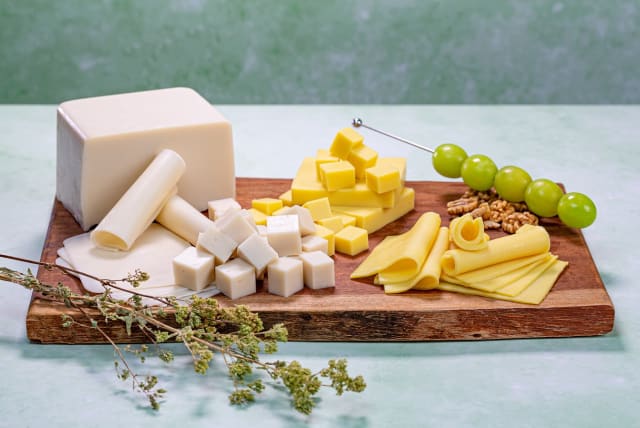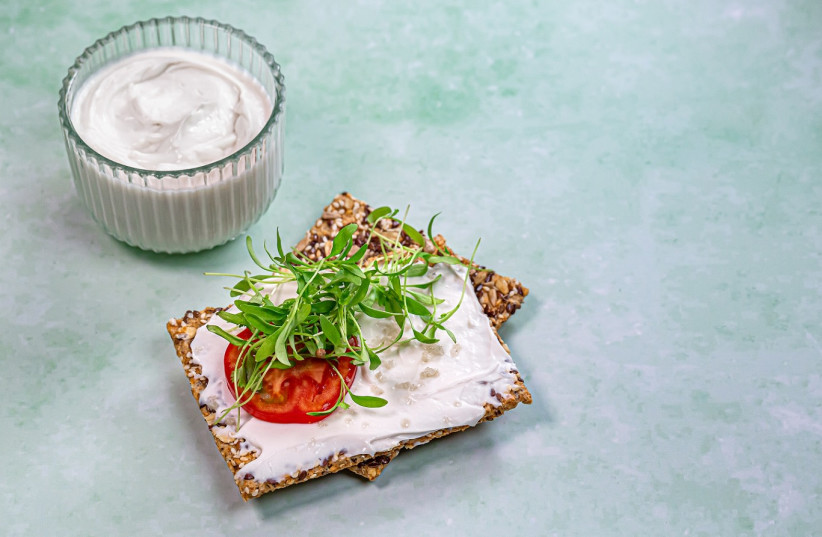ChickP introduces new plant-based cheddar and cream cheese

Using lactic fermentation and chickpea isotope, the company hopes to close the gap between consumer expectations and current plant-based offerings.
Foodtech start-up ChickP has revealed two new prototype plant-based cheese products using the company’s patented chickpea protein isolate.
On Wednesday, the company introduced its analogs for cream cheese and cheddar cheese, each with nary a trace of dairy.
Those who wish to dine finely on the cheesiest finery may soon find themselves acquainted with the products, as ChickP works with manufacturers to see the products hit store shelves.
Those manufacturers are more than interested in producing their own plant-based cheese alternatives, as consumer sentiment has driven market interest upward in recent years. In fact, estimates put the exponentially growing demand for plant-based cheese at an expected market value of $7 billion by the end of 2030.
Appealing to "flexitarians"
According to ChickP CEO Liat Lachish Levy, one of the primary engines driving that estimate upward is the population of “flexitarians” — consumers who prefer to keep things vegan and vegetarian for the most part, but enjoy animal products every now and then.
“Flexitarians dominate the consumer market for dairy alternatives,” said Lachish Levy, who noted that a major hurdle standing in the dairy alternative market’s way is the difficult balance there is to strike between the many characteristics of everyone’s favorite lactose-based snacks.
“[Flexitarians] are eager to eat vegan alternatives as long as those alternatives can level up to real dairy’s sensory and nutritional attributes,” she said. “While some cheese analog producers succeed on the sensory points, this often comes at the expense of the desired nutritional balance – and vice versa. These are precisely the gaps the industry is striving to close.”
For its part, ChickP intends to close that gap by bringing a traditional cheese-production methodology to their products. Both the cheddar and cream cheese offerings are produced using lactic fermentation, which grants them probiotic benefits.
ChickP application manager Maor Dahan elaborated further, noting that the company’s insistence on traditional processing is responsible for their products’ taste.
“We explored a range of cultures to find the strains that work best with our formula,” Dahan said. “On top of that, the synergy between the chickpea isolates and starch helped create a rich, smooth, creamy textured spread on par with real dairy cream cheese.”
The company is currently developing analogs of other popular cheeses, such as Emmental-, Parmesan- and mozzarella-style cheeses, while providing raw materials, recipes and technical expertise to global alternative dairy producers, as well as traditional dairy manufacturers eager to transition into the alternative protein arena.
Jerusalem Post Store
`; document.getElementById("linkPremium").innerHTML = cont; var divWithLink = document.getElementById("premium-link"); if (divWithLink !== null && divWithLink !== 'undefined') { divWithLink.style.border = "solid 1px #cb0f3e"; divWithLink.style.textAlign = "center"; divWithLink.style.marginBottom = "15px"; divWithLink.style.marginTop = "15px"; divWithLink.style.width = "100%"; divWithLink.style.backgroundColor = "#122952"; divWithLink.style.color = "#ffffff"; divWithLink.style.lineHeight = "1.5"; } } (function (v, i) { });


